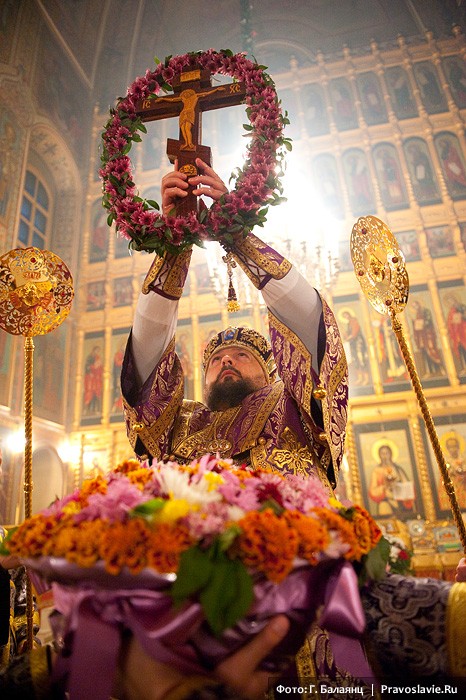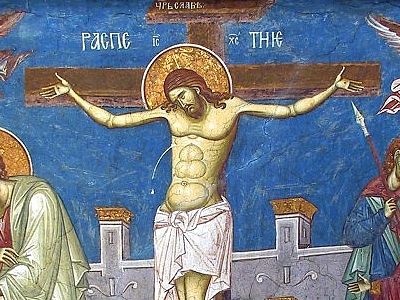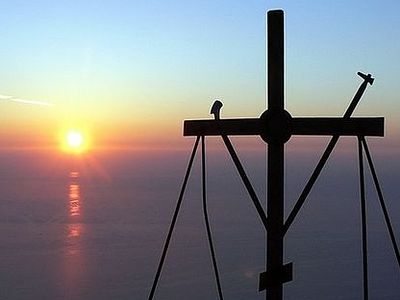Every September, Orthodox Christians around the world celebrate a Feast of the Precious Cross. Although its origins are rooted in history (the finding of the Cross by Empress Helena in Jerusalem, and its recovery two centuries later after being captured by the Persians), my appreciation for the feast this year was broadened by personal experience.
After swimming while on vacation, I began to experience some blockage in my ear. When it worsened, a trip to the doctor revealed the diagnosis otitis externa, or "swimmer's ear." I'd never heard of it, but my experience soon compensated for that ignorance.d
Despite medication, the pain and pressure ramped up over three days, leaving me a useless invalid on my couch. Along with a kidney stone and lacerated cornea, this was among the most painful experiences of my life.
But from that pain came a lesson: that shared pain can create a sense of fellowship, even communion, among those who've experienced it. As with my kidney stone and eye, I found others sharing their experiences of similar hurt. Because of where I was at, we understood each other like never before.
Shared pain can lead to a oneness no less real than shared joy. I found this true of parishioners and friends and also, in a modest way, of my appreciation for Christ.
In Orthodoxy, we don't emphasize an emotive response to the physical suffering and pathos of the Passion, as medieval, Latin art can. There's a certain serenity and dispassion in our iconography that evokes contemplation and stillness.
Nonetheless, it can sometimes be good to acquire a concrete appreciation for the physical suffering of the Incarnate Word.
My most direct encounter with this came the day I was cleaning a wood pile behind St. Michael's and stepped on a board that lifted when I raised my foot. As time momentarily froze, I realized that in a fraction of a second I was going to feel some pain from the nail that had penetrated my shoe and entered me.
There's no describing the shock and sense of violation when an object pierces your body's integrity. But as I sat in the ER at St. Mary-Corwin Medical Center, I remember thinking that if this is what it felt like to be pierced by a tiny nail, how must it feel to have large ones pounded through your wrists and feet. It made me say to myself, "Lord, thank you for doing that, for me."
The Cross became personal like never before, from a little taste of pain.
God doesn't send pain. He doesn't afflict us with kidney stones, lacerations, infections or nails through the feet. But as Joseph discovered in Egypt, what his brethren meant for evil (what comes our way from sin, the devil and death), God can use for good. May we find some blessing in pain, and bear this cross as something that unites us to each other and to Christ.






